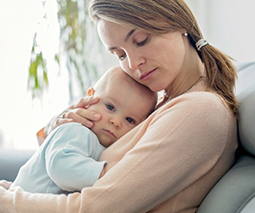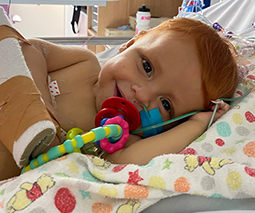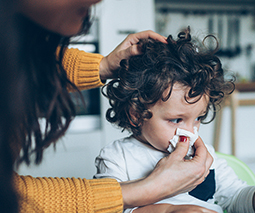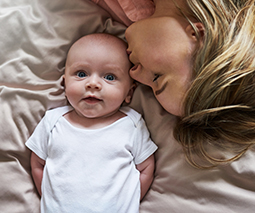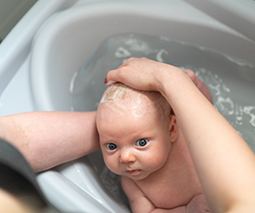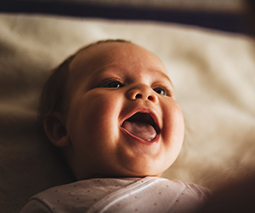What every parent and grandparent must understand about fever in babies
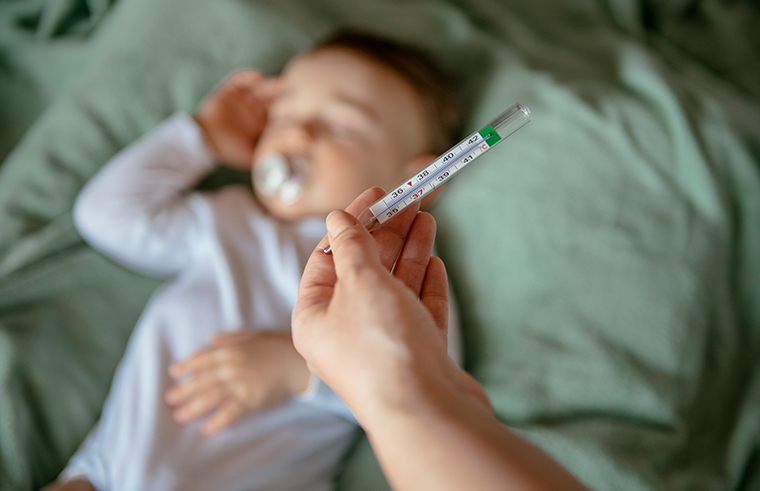
If your baby is struck down with a fever, it’s hard not to get really worried. You remember friends talking about febrile convulsions and before you know it, you’re equally hot and bothered with anxiety.
When is a fever something to be worried about?
We spoke to CPR Kids CEO and former paediatric emergency nurse, Sarah Hunstead to nut out the deeper detail of fevers in babies – and work out when parents are right to be worried and when they should take a deep breath, watch and wait.
Listen to Sarah Hunstead on Feed Play Love
“We really need to define fever,” Sarah explains. “So a fever … is controlled by the brain. It’s not an external heat. It’s an internal heat. It’s defined as a temperature measured (usually by a digital thermometer under the arm) of above 38 degrees.”
Sarah explains that while fevers can be worrying for parents, there’s actually good things going on under the surface. When a virus or bacteria invades the body, the brain resets its internal thermostat to elevate body temperature, in the hopes that it can kill off the invader.
So when should you be worried about your feverish baby? And how do you know if you need to seek medical attention?
“If your baby is under three months of age and they have a temperature above 38 degrees, they need a medical review,” Sarah says.
“So they need to be seen reasonably quickly. You don’t wait all night because they have really immature immune systems. Under three months? They’ve got a fever – off to get medical help.”
Observe closely and trust your gut
If your child is older than three months, parents need to take a look at what’s going on and respond accordingly.
“Above three months … it’s not about the number, it’s about looking at your child,” Sarah explains.
“So if they’re crawling around, they’re drinking well, they’ve got good, wet nappies. Maybe they’re a little bit miserable. You know, they’ve got that runny nose, a bit of a cold and they’ve got a fever, but otherwise you’re thinking ‘OK, they’re all right’ – you know what? They probably are. No matter what that number is on the thermometer.”
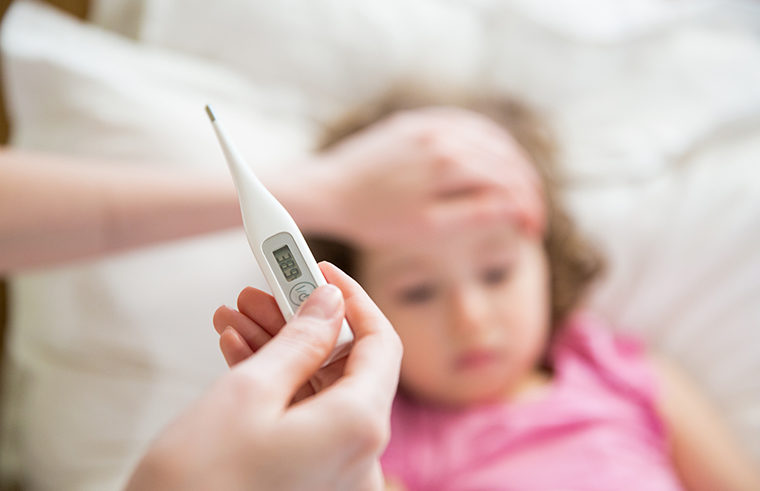
And when do you have to worry? Sarah says it’s often pretty clear.
“If they are lethargic, they’re not drinking, they’re sleeping more than usual, they have less wet nappies than usual … If they’ve got any difficulty breathing, maybe they’ve got a colour change. So they’re a lot more pale or maybe they’re a little bit mottled [in skin colour]. That’s something to worry about,” Sarah explains, noting that parents should seek medical attention if these sorts of changes are present.
“Call an ambulance”
Above all, Sarah urges parents to use their powers of observation and instinct.
“Trust your gut,” she stresses. “If your child is floppy and you’re having difficulty rousing them, if they’re having breathing problems, call an ambulance.”
“What’s the worst thing that can happen?” Sarah points out. “The ambulance comes and says everything’s okay.”
Brilliant advice, as usual, Sarah.
 Want to get more brilliant advice from Sarah Hunstead? Sarah will be talking at our upcoming Bump And Baby high tea events in Melbourne, Brisbane and Sydney in coming months. Book tickets now for a fab day out with your friends and family.
Want to get more brilliant advice from Sarah Hunstead? Sarah will be talking at our upcoming Bump And Baby high tea events in Melbourne, Brisbane and Sydney in coming months. Book tickets now for a fab day out with your friends and family.
